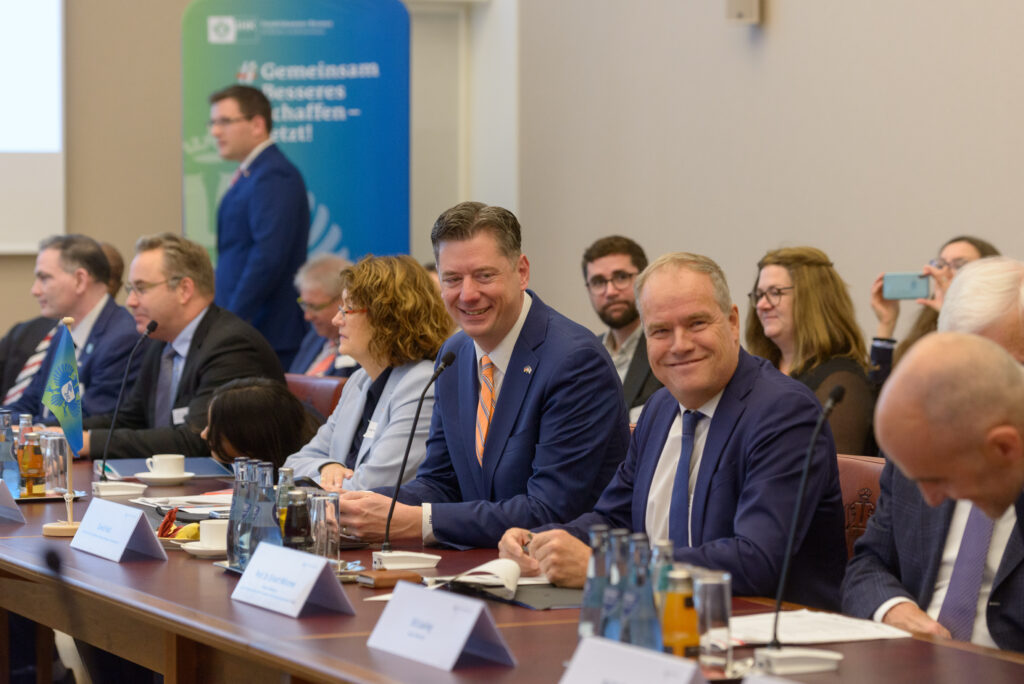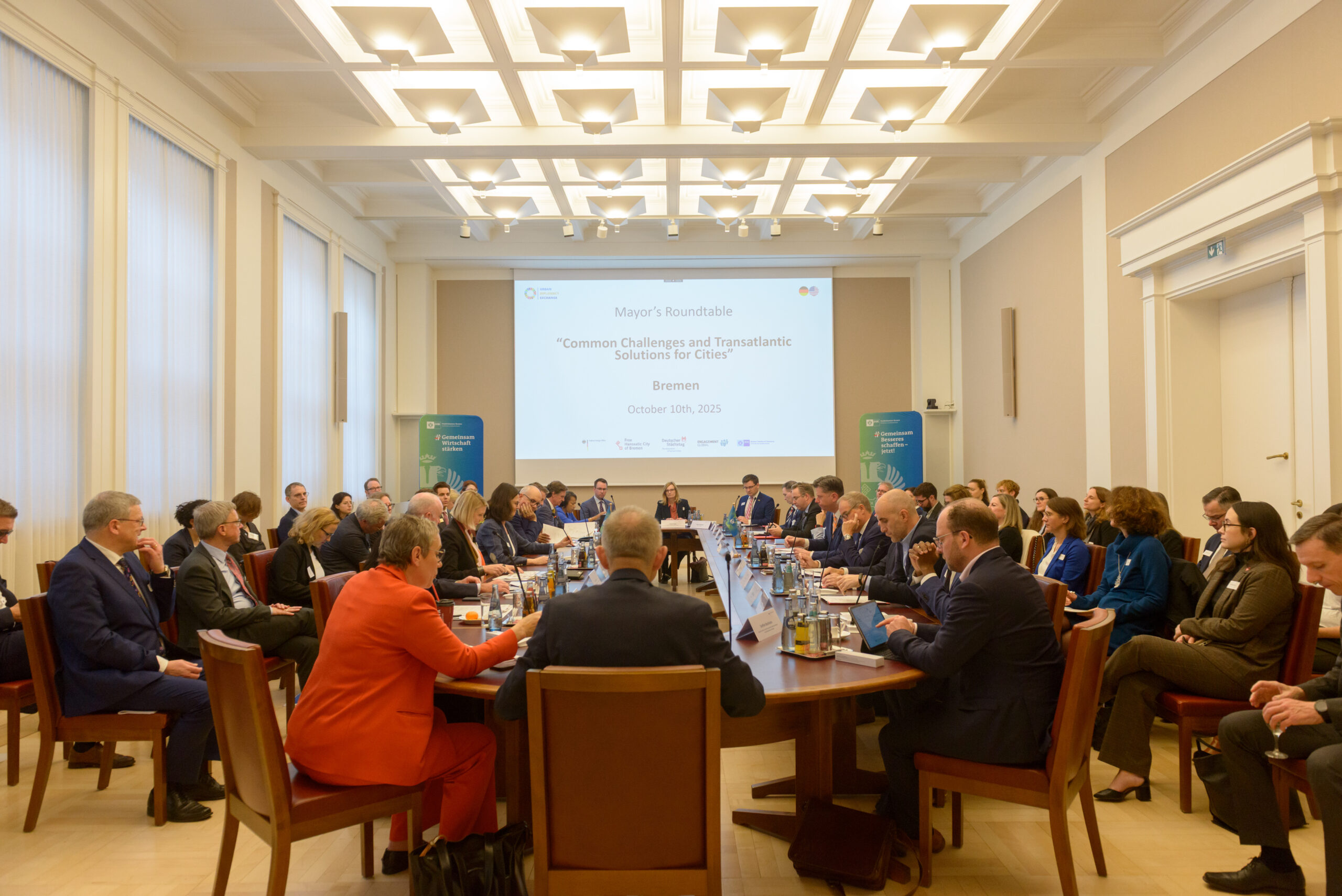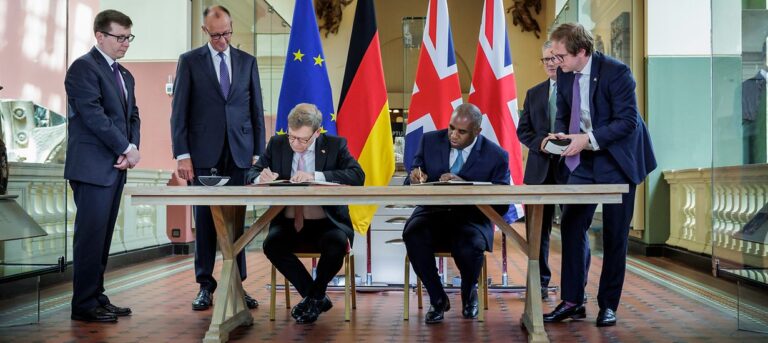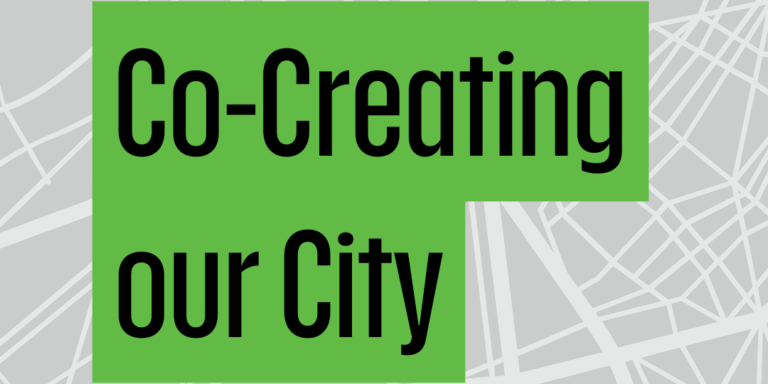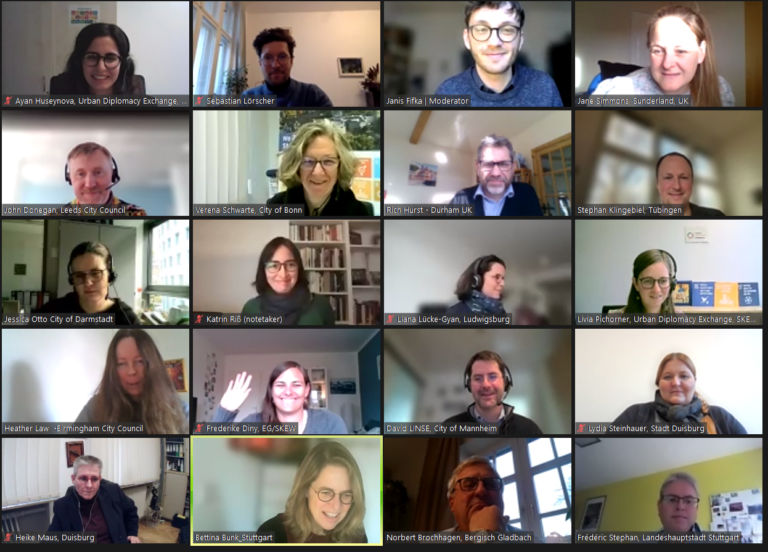Bremen, 10 October 2025
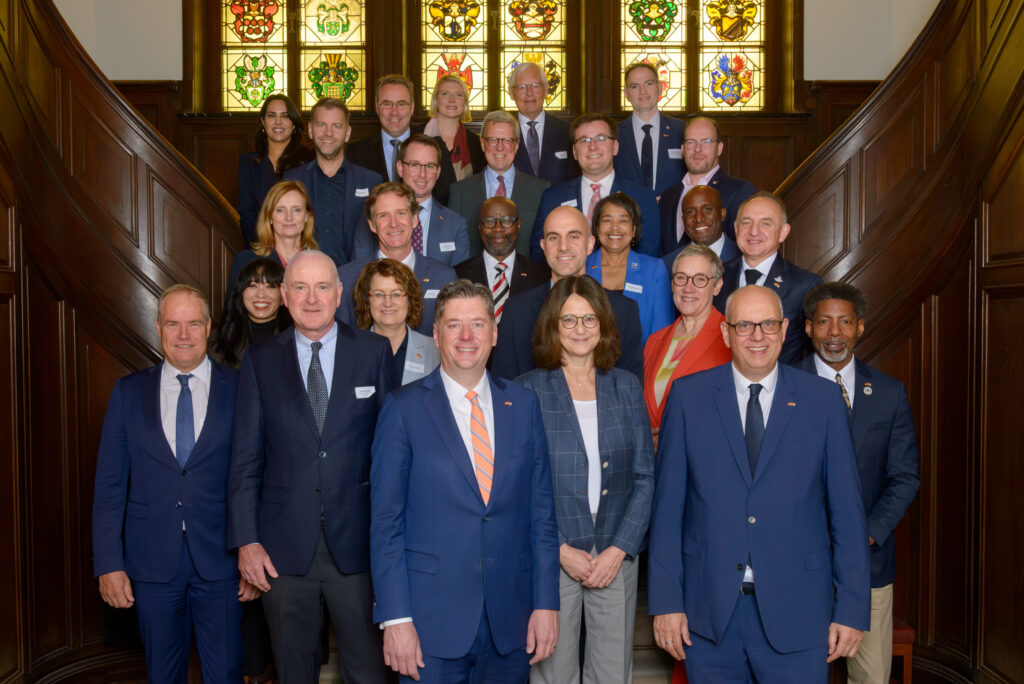
Funded by the Federal Foreign Office as part of the project Urban Diplomacy Exchange (UDE) took place at the invitation of the Free Hanseatic City of Bremen and in cooperation with the German Association of Cities The German-American Mayor's Roundtable took place in the premises of the Bremen Chamber of Commerce. 22 mayors from Germany and the USA together.
Launched as an annual exchange, the meeting in Bremen followed on from the Mayor's Roundtable in New York in June 2024, hosted by the German Embassy and the Office of the Mayor of New York City, as well as previous smaller virtual and in-person roundtables as part of the Urban Diplomacy Exchange project in 2022 and 2023, and subsequent delegation trips. The October meeting in Germany focused on three central themes: affordable housing, innovation and growth, and urban security during major sporting events.
The discussion was moderated by Cathryn Clüver Ashbrook, Executive Vice President and Senior Advisor of the Bertelsmann Foundation. She highlighted the central role of cities as „seismographs“ of global developments and as seeds of democratic resilience and innovation. In her opening remarks, she emphasized that cities—through their proximity to citizens and their ability to foster pluralism and civil society dialogue—remain laboratories of democracy even when national frameworks change.
"They are spaces where challenges are met with pragmatic, people-centered solutions.“
The opening remarks by representatives of the Federal Foreign Office emphasized the enduring transatlantic friendship, which is based on shared values, mutual interests, and deep economic ties. With over 200 city partnerships between the USA and Germany, this network represents a century of cooperation and a growing commitment to urban diplomacy – the use of city diplomacy as an instrument of international understanding.
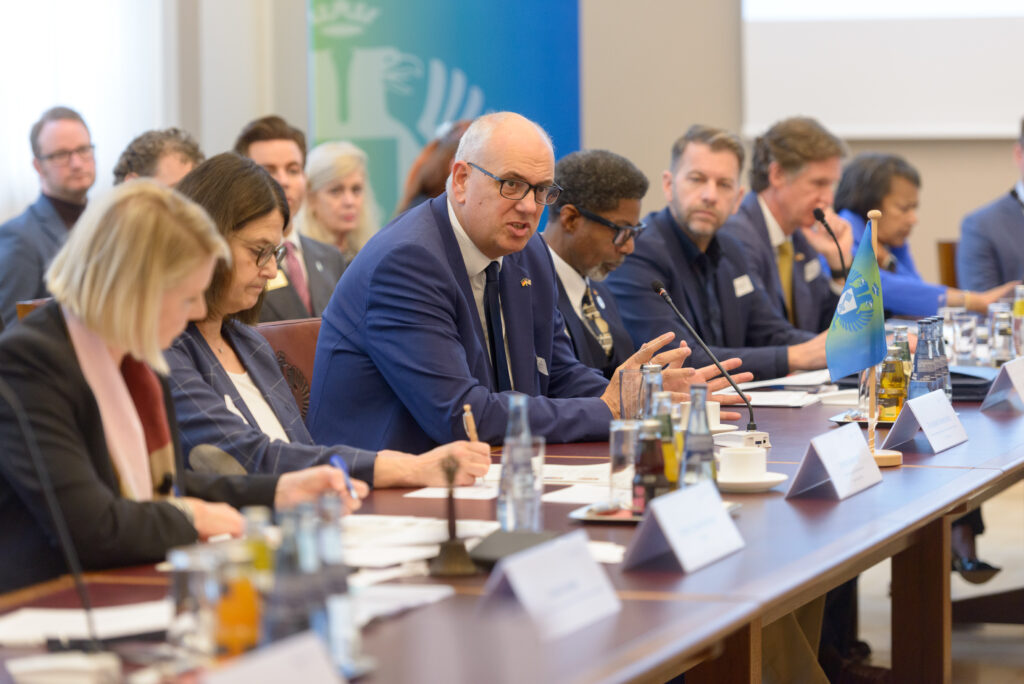
The Mayor of the Free Hanseatic City of Bremen, Dr. Andreas Bovenschulte, He welcomed the participants and emphasized that municipal leadership plays a central role in ensuring the quality of life for citizens. He reaffirmed that cities share the responsibility of creating a good life and a promising future for their populations – based on strong cooperation between civil society, business, and local industry.
Topic I: Affordable housing
Cities in Germany and the US face the challenge of creating safe, affordable, and sustainable housing. Strategies such as converting existing land (industrial or office areas) into residential areas, social housing programs, and new financing models were discussed.
- Hanover With its “Living Concept 2013”, it is pursuing a long-term strategy in which around 30% of the new buildings are price-controlled and sustainability is the focus.
- Kansas City focuses on eviction prevention through municipal funds and partnerships to keep people in their homes.
- Challenges include high construction costs, a shortage of skilled workers, regulatory hurdles and inflexible building regulations.
All participants emphasized that housing is closely linked to infrastructure, mobility, and the labor market. Cooperation between cities, businesses, and civil society is crucial to promoting livable and socially just communities.
Topic II: Innovation and Growth
The second topic block addressed the question of how cities can remain economically dynamic and innovative – especially in the face of demographic change and a shortage of skilled workers.
- Palo Alto focuses on technological innovation and climate protection through cooperation, for example with Tesla.
- Heidelberg sees itself as a city of knowledge and research that systematically networks education from early childhood education to university. Mayor Würzner warned of „brain drain“ and called for greater support from the federal and state governments.
- Other cities like Aachen and Rostock emphasized the importance of networks between universities, administration and business as well as of international cooperation for small and medium-sized enterprises.
Cities are considered engines of social and economic renewal. Innovation requires courage, long-term planning, and collaboration between the public and private sectors.
Topic III: Security at major sporting events
In the third part, the security and organizational requirements of large Sporting events such as the Olympic Games in Los Angeles or international tournaments in Germany.
- Such events bring opportunities for business and community spirit, but require precise crisis planning in areas such as cybersecurity, counterterrorism and disaster management.
- The example of Los Angeles showed how sustainable concepts – such as a „no-build“ approach with existing stadiums – can reduce costs and environmental impact.
- Connected mobility systems and real-time communication were cited as best practices.
- Participants recommended spreading large events across multiple cities to reduce financial and security risks.
Finally, everyone emphasized that such events also offer an opportunity to raise international awareness of democratic values, openness, and inclusion.
In his closing statement, Bremen's Mayor Dr. Andreas Bovenschulte, He stated that the true measure of success lies not in the size of a city or the number of its startups, but in the quality of exchange and mutual learning between municipalities. He reaffirmed the enduring value of local self-government and the ability of cities to bring about tangible improvements in the lives of their citizens.
The Mayor's Round Table concluded with a shared commitment to further deepen transatlantic cooperation between cities and to continue the exchange of best practices on issues shaping the future of urban spaces. Participants agreed that cities are not mere administrative units, but powerful, inclusive, and livable communities—resilient, innovative, and deeply democratic in their efforts to ensure opportunity, dignity, and prosperity for all residents.
